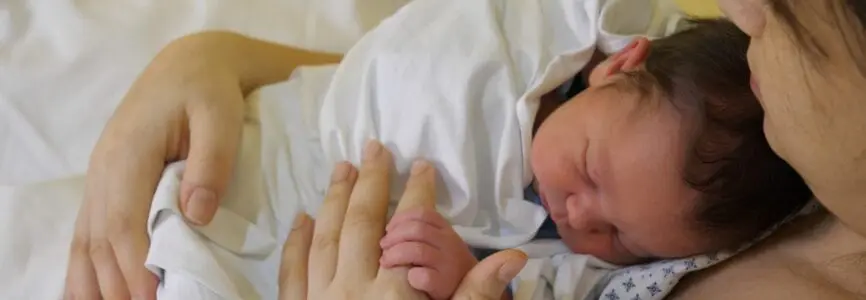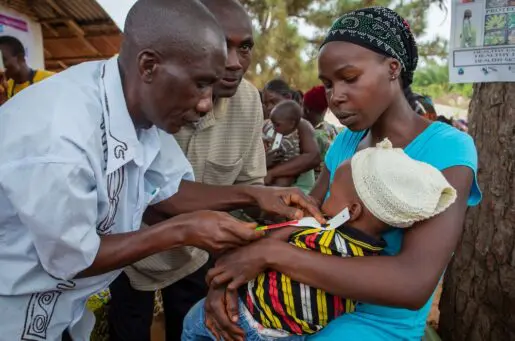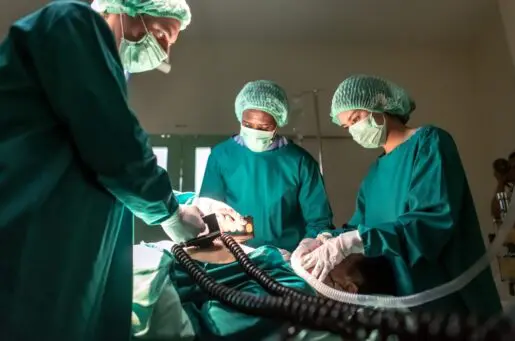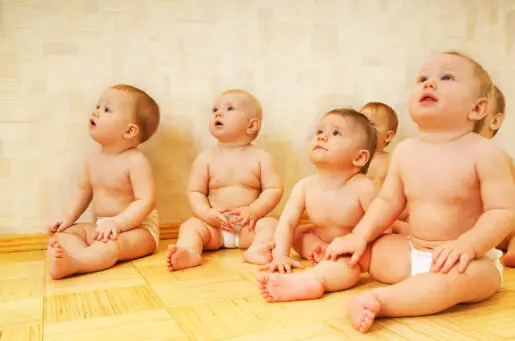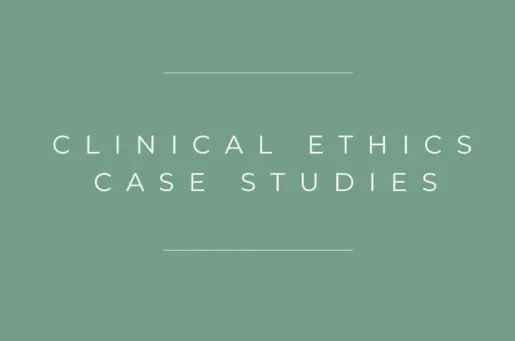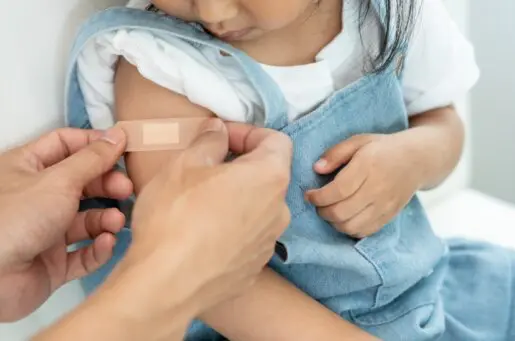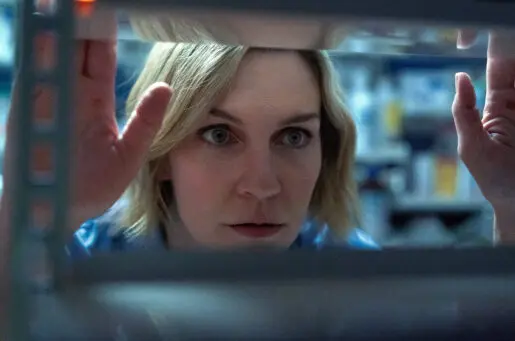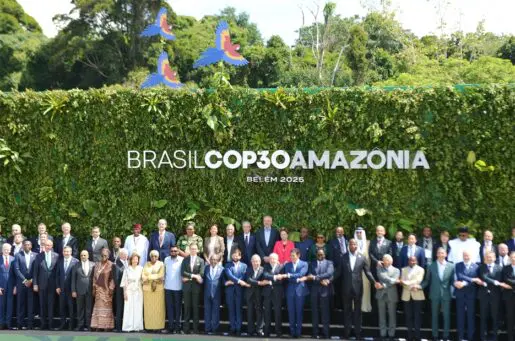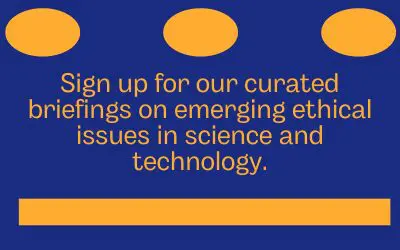Bioethics Forum Essay
Should New Mothers With Covid-19 Be Separated From Their Newborns?
The Covid-19 pandemic has been characterized by many unknowns, chief among them in the world of pediatric ethics is the question of separating mothers who are infected or suspected of being infected from their newborns after delivery to reduce the risk of mother-to-child transmission. Guidance on this issue is conflicting.
Following the initial outbreak, the Centers for Disease Control and Prevention recommended an “all possible precautions” approach, which was subject to broad interpretation. On April 5, the CDC changed its guidance to case-by-case assessment and shared decision-making between the mother and the clinical team. The American Academy of Pediatrics recommends separation “out of an abundance of caution, considering the lack of evidence,” as does the Chinese Expert Consensus. The World Health Organization recommends holding the baby “skin-to-skin,” and sharing a room, and the Academy of Breastfeeding Medicine supports the mother’s choice to separate or not. These differences pose ethical challenges for medical teams trying to balance parental rights with the mitigation of risks to the newborn, resulting in practice variation. Conflicting, differing, or vague guidance also makes it difficult for pregnant women and families to inform themselves, particularly those from historically disadvantaged groups that suffer higher rates of morbidity and mortality. Media reports of hospitals unilaterally separating mothers from their newborns have exacerbated these concerns.
The Washington, D.C., Clinical Ethics Consortium recently convened a meeting to address this issue. One hospital reported that its first mother with Covid-19 was known to be positive prior to arrival for delivery and consented to separation. Two days later the mother and newborn were stable enough for discharge home; although the mother was still symptomatic, there was no clinical justification for continued hospitalization. The newborn did not develop Covid-19.
Although the medical team could protect the infant from the mother’s illness in the hospital, they were sending the infant home with a mildly ill, contagious mother. The question was raised: Why separate the newborn from the mother if she will be taking the child home while she is still ill? Other questions surfaced: What if the mother had not consented to separation? Who has the moral authority to decide if the infant should be separated from the mother in the hospital? How much information about the pros and cons of separation is beneficial to the mother? Could such information be coercive, for example, if stated this way: “You wouldn’t want to take any unnecessary risks, would you?” What is the best practice while working with limited evidence?
Two types of particularly troubling cases emerged during the ethics consortium meeting. First, there are situations in which mothers do not have the opportunity to consent to separation or make another decision aligned with their values and assessment of risk, such as rooming-in. In some circumstances, there may be no time to give a mother counseling on this issue. Second, many prospective parents present to the hospital having already read up on the potential risks and benefits of separation versus rooming-in and decided what they think would be best for their family. Some mothers’ wishes align with the ABM guidelines, which emphasize rooming together is a “reasonable” choice for a mother with Covid-19. These parents may be aware of the WHO’s “Q&A on COVID-19 and pregnancy and childbirth,” which answers the question, “Can I hold my newborn if I have COVID-19?” with an emphatic “Yes.”
The inconsistent guidance, coupled with unprecedented stress on the health care system, may invite conflict between medical teams and families who disagree about what protective measures to take against Covid-19. When pregnant women come to the hospital in the late stages of delivery or deliver precipitously, medical staff may have to make what is both a clinical and a normative determination—one with which the mother may disagree. Lacking determinative evidence on both mother-to-child transmission and disease burden in newborns makes the decision not a matter of just weighing evidence, but of assessing unknown risk–a value-infused determination.
Current Evidence
Evidence suggests healthy newborns are at a low risk of harm from infection. The attributable risk for severe Covid-19 in children is challenging to discern; viral co-infections have been found to occur in up to two-thirds of cases in which coronaviruses were detected from the respiratory tract. The Dong et al. study that the AAP cites as evidence of greater risk relied on clinical, not virologic, diagnosis; Cruz and Zeichner point out “children without virologic confirmation were more likely to have severe disease than children from whom COVID-19 was detected, potentially because their symptoms were caused by other pathogens.”
One study conducted in China between December 8, 2019 and February 6, 2020 reported that of 31,211 confirmed cases, only 9 infants were hospitalized, concluding that hospitalization of infants is rare. A second study conducted between January 16 and February 8 of this year examined 2,143 pediatric cases aged 2 to 13 years who were known or suspected of having Covid-19 and found that 94.1% of them were asymptomatic, mild, or moderate. Those that were severe were not confirmed to have Covid-19, leading the authors to conclude other causes may have been responsible for their illnesses. A third study of 72,314 Chinese cases (through February 26, 2020) found that children under 10 years old accounted for less than 1% of cases. This study also found that of the 171 confirmed cases only 3 required intensive care, and each of those had other comorbidities. The limited studies to date have not found the novel coronavirus in breast milk, nor does the related SARS coronavirus transfer through milk. At this time, published reports indicate very few infants born to mothers with Covid-19 have tested positive for the virus. To date, those who were infected have done very well.
Research does not report any cases of serious illness in newborns born to mothers with Covid-19 who were otherwise healthy. Moreover, the available evidence suggests that the coronavirus may have more difficulty binding to key cell receptors in children than in adults, explaining why children who do become infected seem to have relatively mild cases and further calling into question the risk to newborns.
Balancing Precautions with Parental Decision-making Rights
Holding and direct breastfeeding are essential elements of bonding between mother and child. Unless a newborn has, or is suspected to have, a compromised immune system or other comorbidity that raises the risk of moderate-to-severe illness, it is unlikely that a mother known to have Covid-19 or who has symptoms of the disease, places her baby at imminent risk of serious harm by holding, breastfeeding, or rooming in.
Thus, unless a mother consents to separation, there is currently no basis for a medical team to override parental decision-making rights for their child. Such action would only be justified if the conditions of the harm principle were met—the presence of immediate risk of serious harm to the child. Given that parents are generally accorded decision-making rights and allowed to take on risks on behalf of their children, there would need to be a very compelling reason to justify separating a baby from its mother upon delivery against the mother’s wishes. Analogously, in order for the medical team to make a unilateral decision to separate mother and child, they would have to imagine the justification needed to override parental decision-making in other settings. If a medical team would not go through the established procedures for overriding the mother’s decision, they should not consider unilateral separation.
Maintaining Public Trust During the Pandemic
There is extensive evidence that Covid-19 itself, as well as the draconian measures implemented to combat it, have a disproportionate and deeply negative impact on communities that are underrepresented in medicine. These communities suffer in normal times from higher rates of maternal mortality, less agency, and less support during labor. While we must be vigilant in our efforts to combat this virus, we must be equally or more vigilant in our efforts to ensure respectful obstetrical and perinatal care for all our patients, particularly those who are disadvantaged.
Hospitals should be transparent about how they will implement policies aligned with current CDC and AAP guidelines. While it is open to different interpretations, a close reading of the AAP guidance supports the mother’s choice. If current staffing or availability of rooms or personal protective equipment does not allow a facility to accommodate rooming in (or conversely requires it), that should be made known to patients. Coordination of facilities in close proximity to one another might afford families more options. When possible, discussing these issues with families ahead of hospital admission, especially families who are uninsured or underinsured, may go a long way towards enhancing communication, setting expectations, and maintaining trust.
Recommended Practices
When separation is implemented, such as in the case of a premature infant born to a woman with Covid-19 requiring a stay in the neonatal intensive care unit, efforts should be made to promote parental bonding despite visitation restrictions. Technologies such as video conferencing and other innovative strategies, including drive-up visitation by car to the isolette, may help with bonding and potentially ease the unimaginable parental distress during separation until reunification can occur.
For healthy newborns born to women with Covid-19, we recommend that clinicians follow a shared decision-making model:
- Provide pregnant women and families education on current data, guidelines, available infection control measures, options for accommodations, and the potential risks and benefits of separation. Ideally, this conversation should happen ahead of admission.
- As part of the conversation on separation, discuss the pregnant women’s home situation and help them evaluate guidelines regarding physical distancing and hygiene upon discharge.
- If women consent to separation, provide support to allow for expression of milk if they choose to breastfeed, as well as social supports to comply with physical distancing and hygiene requirements once discharged home. The AAP provides guidance.
- If women decline separation, every effort should be made for them to have rooming in. Provide parental support and training in hygiene including donning and doffing masks and other personal protective equipment.
For at-risk newborns born to a woman with Covid-19, the optimal approach is to obtain maternal consent to implement safeguards as indicated above. If that is not possible, the threshold for unilateral intervention remains the same: separating the mother and child is justified only if the child is at immediate risk of serious harm.
- If there are circumstances that would not permit a facility to honor a request to separate or not to separate, ideally hospitals should make mothers and families aware of these limitations ahead of admission. If the circumstances arise after admission or if no communication has been possible ahead of admission, health care providers should be transparent about what limitations they are experiencing and what mitigation they can provide.
We would like to thank David G Mann, MD, associate professor of Anesthesiology and medical ethics at Baylor College of Medicine and an attending physician in maternal-fetal anesthesia at Texas Children’s Hospital, and Zacharia Cherian, MD, chair of the department of neonatology/pediatrics at MedStar Washington Hospital Center, who spoke at the Washington, D.C,. Clinical Ethics Consortium meeting on this issue.
Stowe Locke Teti, HEC-C, is a member of the core faculty at the Harvard Medical School Center for Bioethics and executive editor of the Harvard Bioethics Journal and Pediatric Ethicscope, Twitter: @StoweTeti. Christy Cummings, MD, is a neonatologist at Boston Children’s Hospital and an assistant professor of pediatrics at Harvard Medical School, Twitter: @CCunmingsMD. Louise P. King, MD, is director of reproductive bioethics at the Harvard Medical School Center for Bioethics and an assistant professor of obstetrics, gynecology, and reproductive biology at Harvard Medical School, Twitter: @louise_p_king. Cynthia C Coleman, D. Bioethics, RN, HEC-C, is a senior clinical ethicist at MedStar Washington Hospital Center and an adjunct professor in bioethics at George Washington University School of Medicine and Health Sciences. Kayla Tabari, RN, MBE(c,) is a labor and delivery nurse and Masters of Bioethics candidate at the Harvard Medical School Center for Bioethics, Twitter: @kayla_tabari. Christine Mitchell, RN, MS, MTS, FAAN, is executive director, lecturer, and director of the MBE Capstone Program at the Harvard Medical School Center for Bioethics. Twitter: @Mitchell_HCB.
45% of The Hastings Center’s work is supported by individual donors like you. Support our work.
